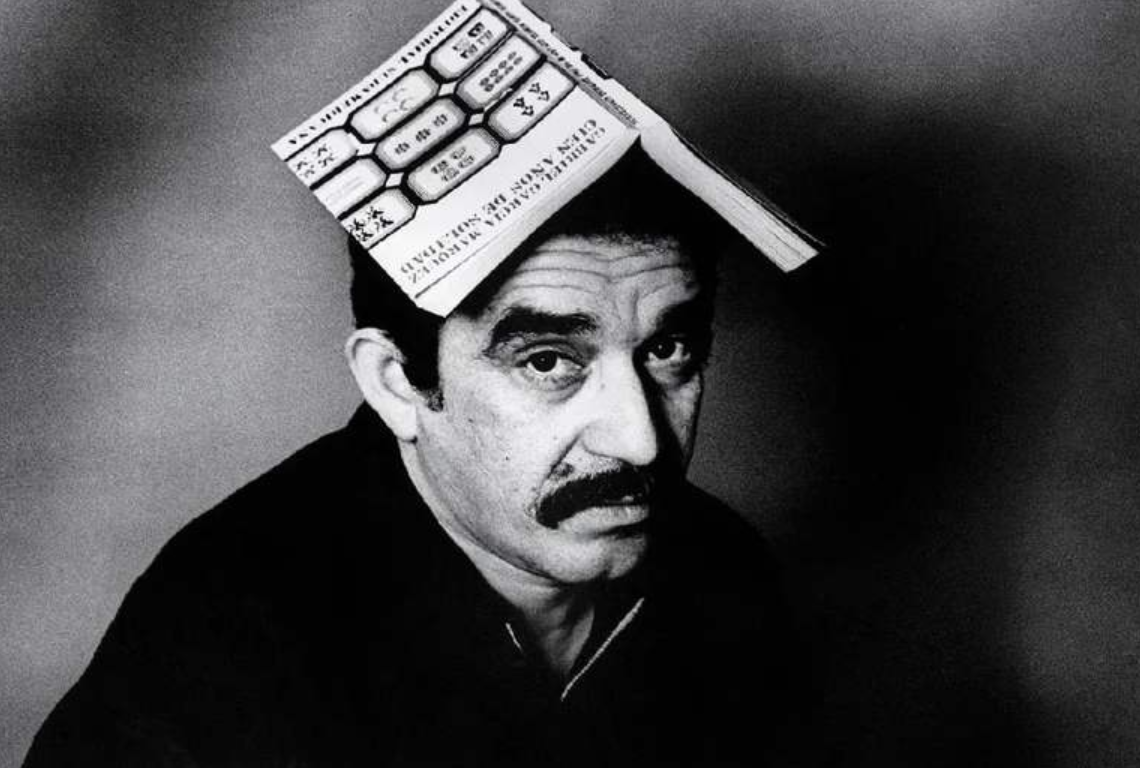
Let me parody the opening line of One Hundred Years of Solitude: "Many years from now, looking back on contemporary literature, people will be reminded of the mid-1980s, when they first became aware of South American fiction."
At that time, the novel creation was still focusing on the fate of the group, and the translation of various foreign literary schools opened the eyes of writers, but because of the lack of the tradition of taking the self as the object of reflection, writers were unlikely to express the existence of the individual, and "One Hundred Years of Solitude" gave them inspiration, that is, they can write the family history of several generations along the road of the fate of the group.
The old is the modern, and there is no better story to write about a group's doomed fate and inexplicable fears than the story of an ancient family.
Gabriel Garcia Marquez was born in 1927 in Aracataca, a small coastal town in Magdalena, Colombia. He lived with his maternal grandparents as a child. He moved to Sucre with his parents in 1936. He was admitted to the National University of Bogota in 1947.
In 1948, he dropped out of school due to the Civil War and entered the newspaper industry. He began to publish literary works in the 1950s. Moved to Mexico in the early 1960s. One Hundred Years of Solitude was published in 1967. He was awarded the Nobel Prize for Literature in 1982.
Marquez is indeed a good storyteller, and "One Hundred Years of Solitude" begins with the memories of Aureliano Buendia and follows the fortunes of one family for seven generations.
Jose Arcadio Buendia was a first-generation patriarchate, married to his cousin Ursula, who, according to legend, would give birth to pig-tailed children, refused to sleep with Ursula, and Buendia, unable to bear the taunts of the villagers, killed him in a fight, and with his wife and followers, crossed the mountains to the coast in search of a new settlement, Eventually they settled down by a small river and built a village, which they named Macondo.
Jose Arcadio Buendia led the men in farming and breeding, and the village slowly became a town. However, Buendia was always fascinated by all the strange things, he believed in the alchemy of the Gypsy Melchiades, and stayed at home all day thinking about various scientific inventions, teaching children to read and write, and telling them about the wonders of the world.
This miracle actually happened all around, first in the Buendia family, and then in the whole village, insomnia and amnesia, which, according to Melchiades, is "the forgetting of death." It is the inescapable fate of mankind that generations of people are happy in this world only because they forget about death.
The fate of each member of the Buendia family is similar, and the seven generations of men in the family have adopted similar names, either called Aureliano or Arcadia, making it difficult for the reader to remember their names, and their personalities are the same, all of them full of passion, rebellious, and daring.
The women of the family are all proud and capricious, and the hot passion in their hearts often drives them to do crazy things. Amaranta and Rebeca, the adopted daughter of the family, fall in love with the same man, and though neither of them gets what they want, they become lifelong enemies.
Such family novels are often set against a backdrop of a big political event that would otherwise fall into triviality, and the big event in One Hundred Years of Solitude is the war between liberals and conservatives. Jose Arcadio, the second eldest son of the Buendia family, was expelled from his home by his mother Ursula for living with Rebeca.
The second son Aureliano joins the liberal army, rises to the rank of colonel, leads the army to the north and south, is arrested by the government army, and at the execution site, he recalls the scene when his father took him to see the ice as a child, echoing the opening line of the novel: "Many years later, facing the firing squad..."
This famous opening often gives the reader the illusion that Colonel Olano will be killed by a gun, but in fact, the colonel's death is a long time away in the novel. Jose Arcadio appeared to rescue him, and shortly after rescuing his brother, he died suddenly in his home of unknown causes. This passage in particular is characteristic of the magic of the whole novel:Jose Arcadio had just closed the door when a sudden roar of a gun shook the whole house.
A stream of blood flowed from under the door, through the drawing-room, out of the house and into the street, down the uneven pavement, down the steps, up the stone railing, down the Avenue Turk, turning first to the left, then to the right, then to the Buendia house at a right Angle,
It flowed under the closed door, next to the corner so as not to spoil the carpet, through the reception room, through another room, around the dining table in a great arc, through the gallery of begonia flowers, under Amaranta's chair where Aureliano Jose was giving math lessons, into the barn, and finally into the kitchen, There Ursula was preparing to break thirty-six eggs for bread.
Rabelais had similarly exaggerated depictions of male dogs in heat urinating in the street, creating a stream, but Marquez's description was different, more bloody than Rabelais's humor, and this is the difference between the previous era and the current era.

